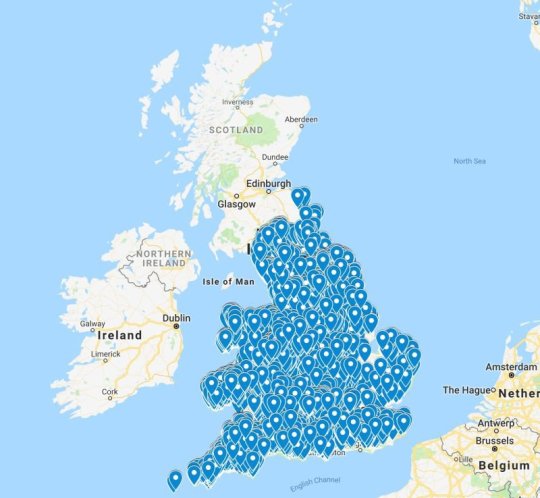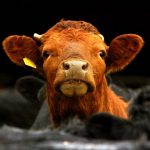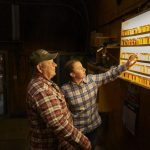
Entitled Project CALF, the site is urging others to ‘document, protest and expose’ the actions of the farmers whose addresses and phone numbers are all listed online. Farmers now fear that they will be targeted by protests, after the project branded their work a ‘dirty business’.
The map is made from the Food Standards Agency list of registered dairy farms, conducted on June 4 2018. There are 9,338 farms on the original spreadsheet, although it’s not clear whether all of these have been marked on the interactive map. Sally Reedman, whose farm is listed, said she plans to give any visitors a tour so they can get industry facts.
‘It’s absolutely disgusting, the website is full of incorrect facts too,’ she said. ‘Our oldest cow is 18! We are on the map and b****y locals in the village are sharing the Facebook page and the website into local spotted and selling sites. ‘Cheers for that, make us a target. We’ve decided if any come round they can have a welcomed guided tour. Nothing to hide. ‘We don’t kill bull calves or sell them to market (they go to a local farmer who keeps them as fat beast).
‘Our cows are all of a good age, they don’t go into calf until they are two and have 18 months out to grass before joining the milking herd. Our girls come to us for cuddles and are all happy and well. ‘Everyone is welcome to their opinion, we’d just like them to have true accurate facts before they make them.’ Activists behind Project CALF claim that 24 male calves are killed every hour.
The site calls for people to take part in ‘direct action’ against farming via ‘citizen journalism, peaceful protesting and outreach’. Their advice includes not co-operating with police and giving ‘no comment’ if questioned by officers. ‘Locate a dairy farm using our maps. Using public footpaths, obtain the footage of the cows and separation pens,’ the site reads. ‘Talk to the farmers about dairy practices. Let the farmers know their dirty business is everyone’s business!’ Activists are then urged to share their findings online. The map is modelled after a similar project in Australia, in which Animal rights group Aussie Farms released the contact details of 6,000 farms.




















